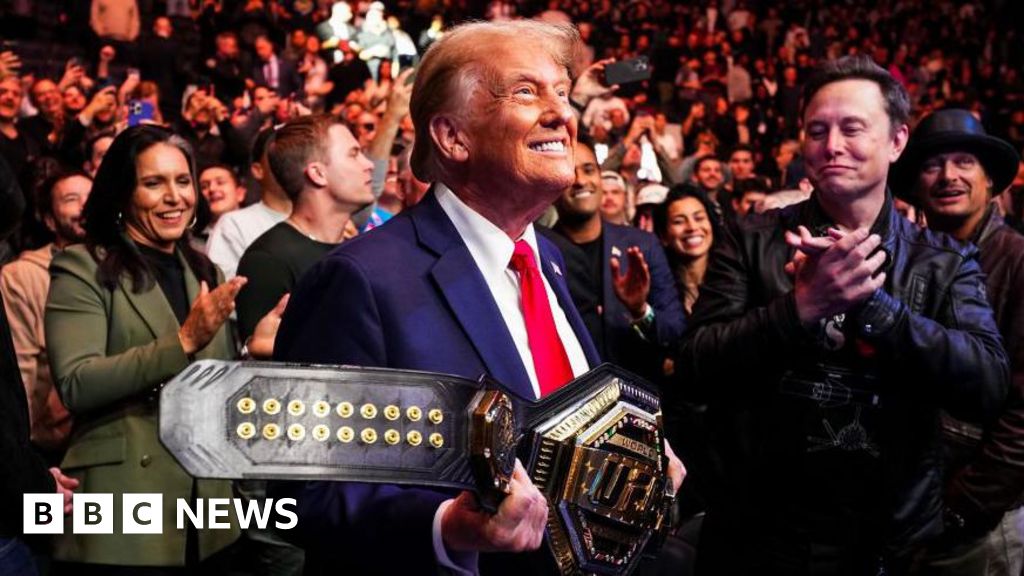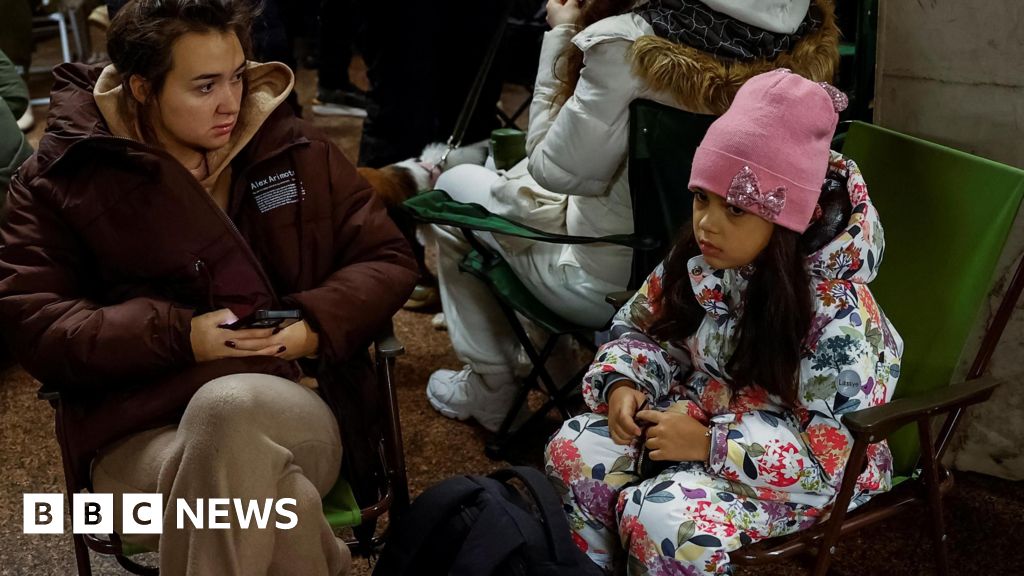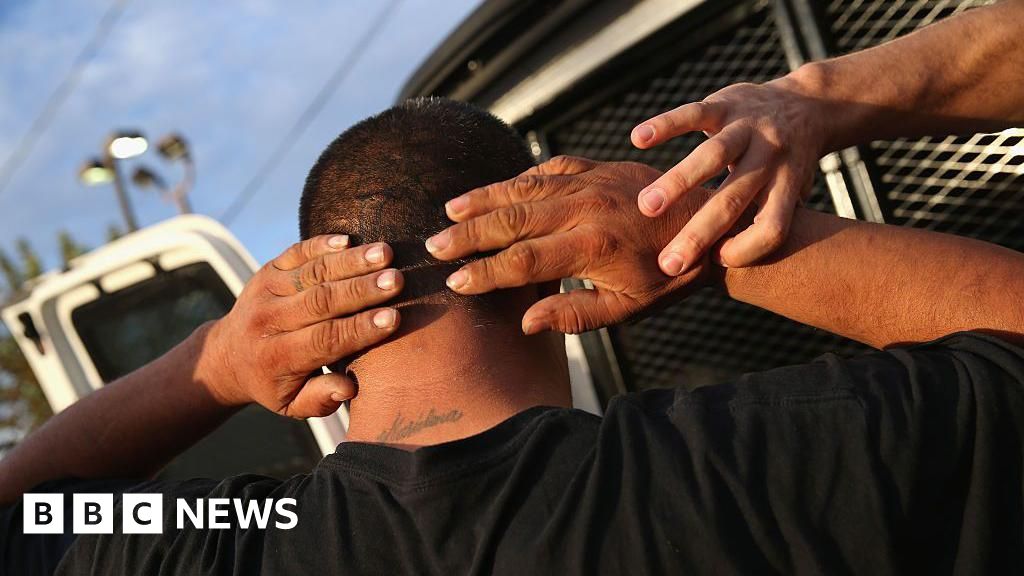ARTICLE AD BOX
By Stephen McDonell
BBC News, Beijing
Image source, Getty Images
Image caption,China managed to get at least some spectators into stands
The Olympic flame has been extinguished. So what does the afterglow look like?
As a sporting event, it has been spectacular.
However, when it is remembered in the years to come, this is what will most likely be talked about: a US-born athlete competing for China; a Russian teenager allowed to compete despite testing positive for a banned substance; a virally popular mascot; and a debilitating virus.
From the outset there was controversy.
The Chinese government constantly says that the Olympics should not be about politics, but then chose a war hero from the deadly border clashes with Indian soldiers to carry the Olympic torch.
Major Western nations led a diplomatic boycott of the Games, after mounting allegations of widespread human rights abuses in China, especially in the country's far west, where hundreds of thousands of ethnic Uyghurs have reportedly been detained in re-education camps.
The Chinese government says these are vocational centres.
At the opening ceremony, there was Russia's Vladimir Putin and Pakistan's Imran Khan but, beyond them, not many household names in terms of international leaders.
Yet, as was predicted, once the sport started, it became the focus.
And in China, one name has sailed above all: Eileen Gu.
Image source, Getty Images
Image caption,Eileen Gu has been the undisputed star of the Games
The extremely talented athlete was born in the US to a Chinese mother and chose to represent her mother's homeland, winning two gold medals and a silver for China and becoming the first freeskier to win three medals at a single Games.
If you were to play a drinking game where you raise a glass every time she appears on a television advertisement in China, you would not be walking out of the bar without assistance.
Her enormous popularity is completely understandable. What she can do under pressure is phenomenal.
However, the role she has also played in the delivery of government propaganda messages has presented questions over how much she really understands the country she is now representing.
During the Olympics she has been highly active on social media.
She was asked by one follower why she had access to Instagram in China. "That's not fair," the follower wrote. "Can you speak up for those millions of Chinese who don't have internet freedom?"
She replied: "Anyone can download a VPN. It's literally free on the App Store."
This is highly misleading. It is not as easy as that to access a VPN (Virtual Private Network) to jump over the Great Firewall of China.
What the 18-year-old potentially does not understand is that the App Store she uses with her US Apple account is not the same as the App Store available in China, where - following a crackdown on VPN use by government censors - there are no usable VPNs readily available to access Instagram.
When she finished her brilliant run to take gold in the women's big air, in the stands watching her was Chinese tennis star Peng Shuai, who's been at the centre of a storm of controversy. On social media, the former Summer Olympian accused senior Communist Party figure Zhang Gaoli of sexual assault or pressurising her into a sexual relationship, depending on the translation.
Image source, Getty Images
Image caption,Kamila Valieva is the other big story of the Games
Having Peng there to watch Gu presented one of the biggest moments at these Games.
Gu said she was "really happy" that Peng Shuai saw her compete, adding: "I'm really grateful that she's, yeah, happy and healthy and out here doing her thing again."
But, following some of Peng's - at times bizarre - highly orchestrated public appearances in Beijing, the Women's Tennis Association has questioned whether she really is free to "do her thing again".
The other moment which will be spoken about for a long time was when Kamila Valieva tumbled to the ice after a number of errors in the women's figure skating.
The 15-year-old Russian is already being touted as one of the greatest skaters of this generation but, after being embroiled in a dramatic doping controversy, she stumbled and fell during her last routine leaving her in fourth position.
Even if she had not faltered and had finished first as expected, she would not have received a gold medal straight away because of an ongoing investigation about the circumstances in which a banned substance ended up in her body.
The Court of Arbitration for Sport allowed her to compete after being told this was due to a mix-up with her grandfather's heart medication.
IOC President Thomas Bach said it was "chilling" to see how she was treated by her coaches after coming only fourth.
He spoke warmly about the young skater but indicated that her coaching team are going to be scrutinised closely.
Meanwhile, on Chinese social media, nationalists have said the skater they call "Baby K" has been the victim of a conspiracy being masterminded by the United States.
This has been amplified by the likes of the Communist Party's most important mouthpiece, the People's Daily. It quoted a Russian "expert" saying that the incident could be the result of "Western intelligence services acting in a war against Russia waged by the US and its allies."
There had been those lamenting that these Olympics were being held in an arid place which needed vast amounts of artificial snow to proceed.
Image source, Getty Images
Image caption,Unexpected heavy snow caused major disruption to the Winter Olympics
It ended up snowing so much in the mountains that some events had to be delayed because of poor visibility.
They were tough conditions up there. Competitors could be seen shivering after competing at -12C (10F) with a bitter wind howling down the Mongolian Plateau.
But the facilities did not disappoint. Have we ever seen anything like the big air run inside the city's old Shougang Steel Works?
Another thing that shone through was the camaraderie between the athletes in various disciplines, embracing and supporting each other.
We saw this when Switzerland's Fanny Smith was removed from bronze medal contention, despite finishing third in the ski cross, after receiving a penalty.
Germany's Daniela Maier, who finished fourth, was elevated into a medal position but she shook her head at the judge's decision saying that Smith should not have been penalised.
If you could bottle what the Olympics is supposed to be about, that is it. And we saw it.
For most people in China, this has been a festival of winter sport which has come at the right time for binge television watching because the whole country has been on holidays for the Chinese New Year break.
One measure of people's enthusiasm has been the unbridled keenness here for the Olympic merchandise, especially anything featuring the panda mascot.
This seems to have taken suppliers by surprise because most of these items sold out almost immediately.
Image source, Getty Images
Image caption,The popularity of the panda mascot seems to have taken organisers and suppliers by surprise
For a country new to many winter sports, most people the BBC spoke to here seem to have really enjoyed it. Where others had concerns about Covid outbreaks inside the venues, they never seemed to have any doubt this would be managed.
The restrictions worked. Daily testing inside the massive Covid protection bubbles identified those who were infected and eventually new cases dropped to zero.
Unlike at last year's Summer Olympics in Tokyo, Beijing's organisers were able to manage the virus in ways that meant at least some spectators could be invited.
Those fortunate enough to get in naturally cheered on the home team, but they were also enthusiastically applauding competitors from around the globe.
For the Chinese government, they would have to be pretty happy with how it all went. China won a lot of medals, Covid was controlled, and there were no protests from athletes.
It certainly could have been a lot worse.

 2 years ago
28
2 years ago
28








 English (US)
English (US)